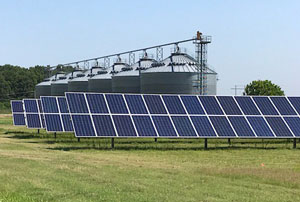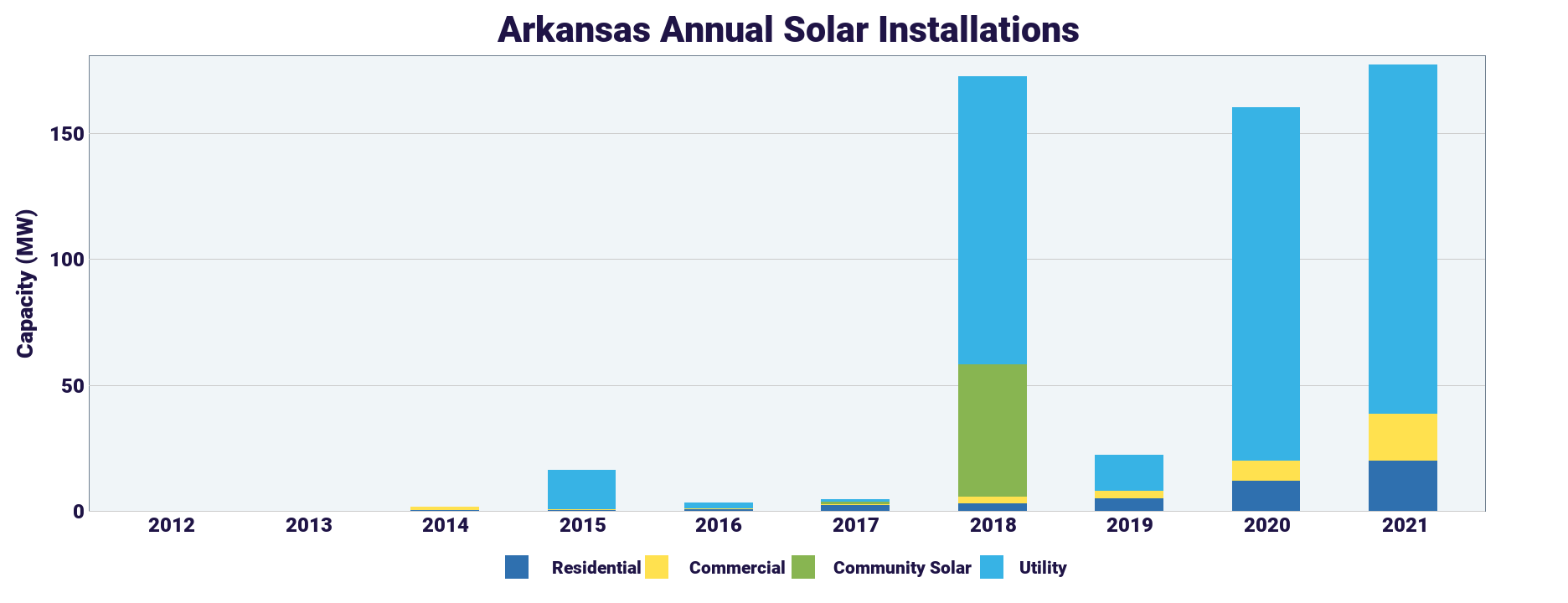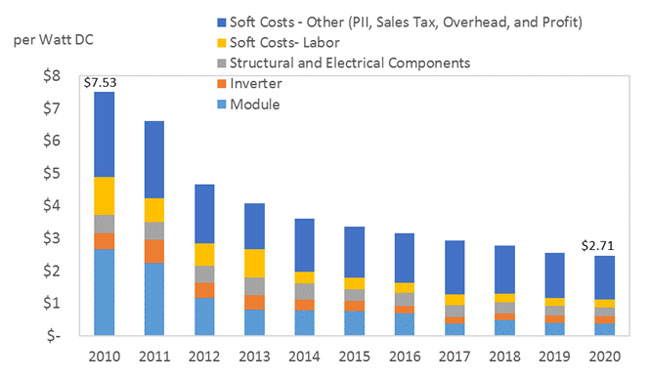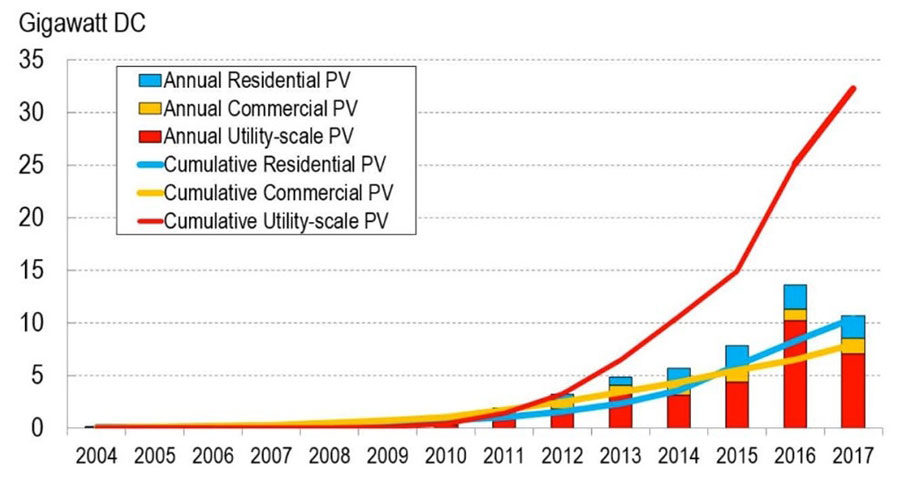Contact
Associate Professor
UADA | CES | Biological & Agricultural Engineering
Phone: (479) 575-4862
Email: yliang@uada.edu
Is Solar energy right for your business, home, or ag production?
To determine if solar energy is right for you it's important to consider the financial and environmental benefits. Use the icons below to explore our solar energy resources or continue reading.
See How Solar Energy Is Helping Poultry Producers
How much does it cost to get started with solar for your home?
On average, installation and the system together can run between $15,000 and $25,000 for a residential solar PV system. In 2021 the cost is about $20,000 after tax credits for a 10 kW system at about $2.80/Watt. See the incentives page for more information on tax credits.
Note that the cost of solar has fallen over 20% over the past 5 years (Figure 1) and is expected to drop further due to the current market penetration.
Use the Solar PV Payback Calculator
This spreadsheet model is mainly developed as a simple tool to assist potential solar PV customers in the state of Arkansas. Instructions on how to use the calculator is included on the spreadsheet.
Download the PV Payback Calculator
How much does it cost to get started with solar for your farm?
Photovoltaic installation on farms are larger than residential systems, so is less expensive per unit of system capacity. Most developers consider a system size above 100 kW for the benefit of economy of scale due to the costs of equipment, permitting, inspection, interconnection, besides the major components of solar modules and inverters. Net metering and meter aggregation policy of Arkansas makes it an attractive investment for agricultural businesses.
Can solar energy save you money?
The resultant electricity cost savings help the customer recoup the cost of the PV system and often represent one of the most significant sources of “value” for PV systems. Whether solar energy makes sense depends on many factors. The amount you pay on your electric bill, your location, and incentives can impact your wallet over time.
Solar array is a long-term investment, because solar PV systems are guaranteed production for at least 25 years. A recent solar survey of residential owners listed “increased home values as an emerging factor." Many home and business owners install solar arrays to avoid future escalation of electricity costs. Some owners add battery storage to their PV systems for emergency power generation during transmission disruptions.
Is solar energy better than traditional energy sources?
Solar is an environmental friendly energy supply comparing with traditional energy sources. Solar energy is rising as a viable alternative to fossil fuels, see example (Entergy Arkansas solar program slated to save $60m for local schools, other customers) as solar panel efficiency continues to increase, total system costs continue to decline, and government incentives are established.
The efficiency of solar panels has increased from 10% to over 20% since the early 2000’s, while the cost of photovoltaic (PV) systems has dropped over 60% in the past decade. That makes the photovoltaic systems the most financially viable source of energy among the existing renewable energy applications.
Solar Photovoltaic Applications Trend
Solar photovoltaic (PV) deployment has grown rapidly in the US over the past several years (Figure 2) with cumulative installation surpassing 50 Gigawatt DC across utility-scale, residential and commercial sectors in 2017. Arkansas ranks 11th in the solar power potential among the 50 states (Nebraska Department of Environment and Energy), and the 25th in solar capacity installed in 2020 (Solar Energy Industries Association ).
Solar installation in Arkansas took off in 2018 (>150 MW), with utility-scale systems leading the new installation (Figure 3). Photovoltaic (PV) projects are an increasingly common sight across Arkansas, in particular the installations on row crop farms, thanks to the sharp declining cost of the equipment and installation and the reinstated net metering policy by the AR Public Service Commission in 2020.
All thing considered, making financial sense of the investment in solar PV requires careful consideration of installed costs, the value of production, and operation and maintenance costs.

Figure 3. Arkansas annual solar PV installation in residential, non-residential and utility sectors (Source: Solar Energy Industries Association, Arkansas Solar - Solar Energy Industries Association).





